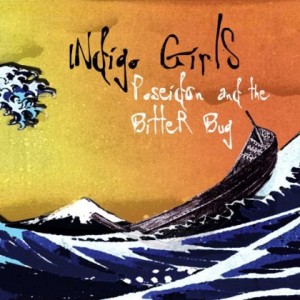 Poseidon and the Bitter Bug
Poseidon and the Bitter Bug
by The Indigo Girls
IG Recordings
TOGETHER, Amy Ray and Emily Saliers form the Indigo Girls, the Grammy-winning folk-rock act whose new album, Poseidon and the Bitter Bug, marks the pair’s return to an independent label—their own, in fact, which they dubbed IG Records—after releasing eleven, major-label studio albums since their debut in 1987 (with Strange Fire). The homecoming must have been catalyzing, because they recorded Poseidon in just three weeks inside an Atlanta studio.
Now 45 and openly gay, the Girls have thoroughly outgrown their band’s name, but their personal lives have long run on parallel tracks. They met as classmates at Laurel Ridge Elementary School in Decatur, Georgia. After college, they joined the vibrant music scene in Athens, Georgia (the incubator for contemporary acts like R.E.M. and the B52’s).






